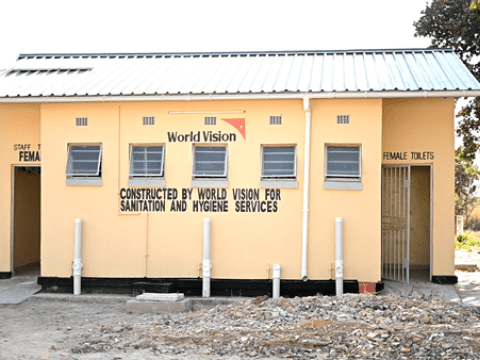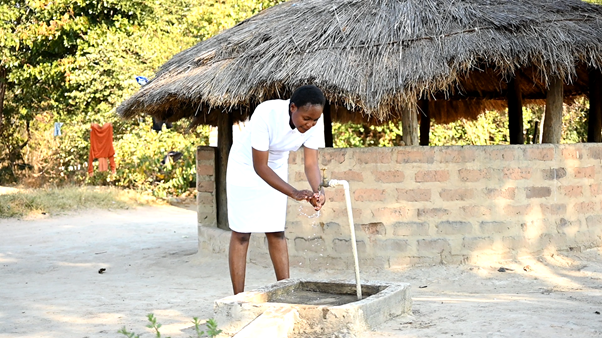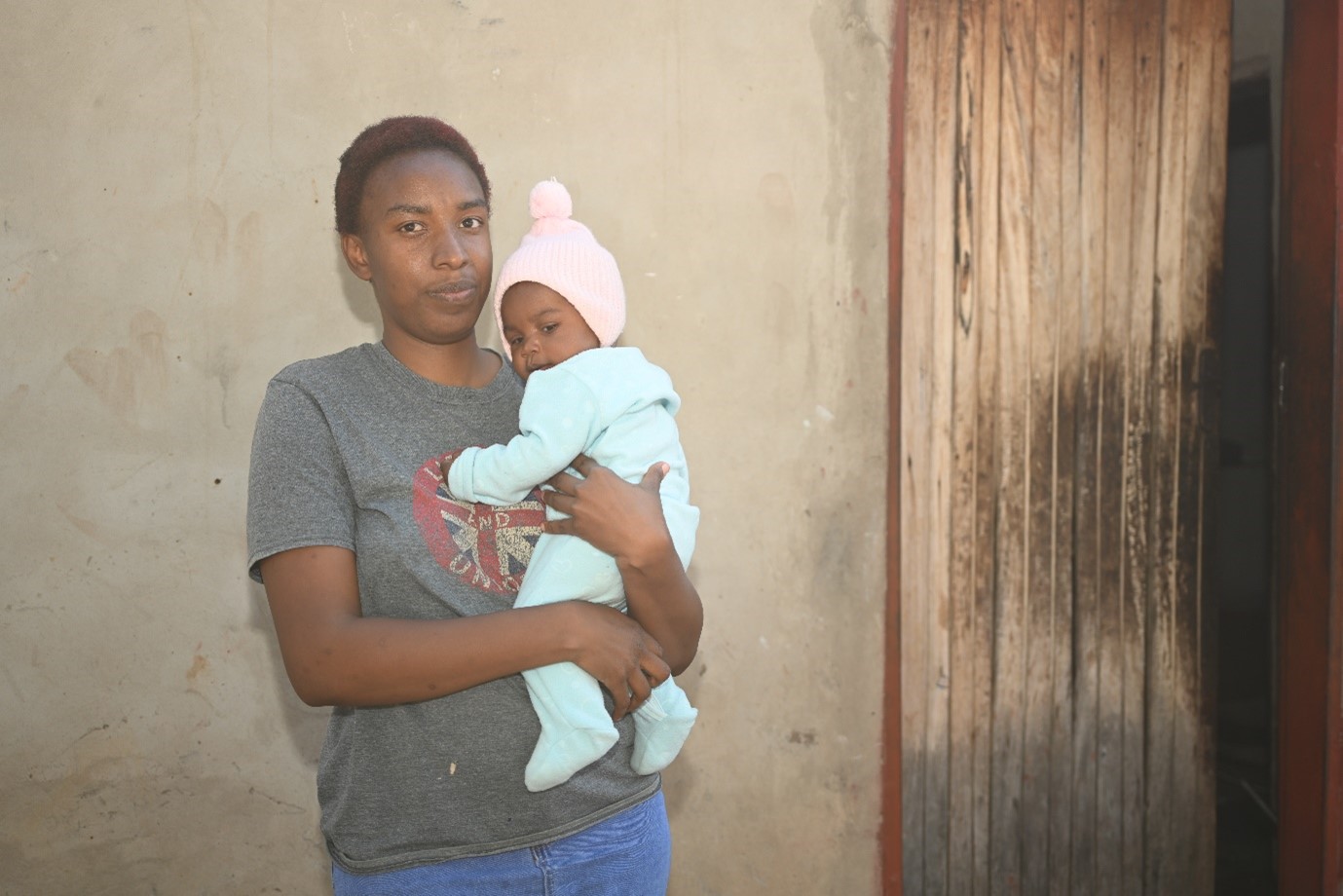How Clean Water and Ablution Block Improved Maternity Care at Kapililonga Health Post

Lack of water, poor sanitation and hygiene remain critical concerns affecting quality health service delivery in rural health posts across Zambia.
At Kapililonga Rural Health Post, World Vision Zambia, through the Survive to Thrive project, has brought much-needed change, particularly in maternity care, by installing a mechanized water system and constructing an ablution block comprising water-borne toilets and bathrooms.
The provision of the infrastructure has not only improved hygiene and sanitation but has also revolutionized maternal care, instilling confidence in both healthcare providers and expectant mothers.
Kapililonga Rural Health Centre Nurse-in-Charge, Chola Chileshe, remembers the challenges they faced before the water system was installed.
"So, before we had water at the facility, my experience was quite a difficult one because we had to walk long distances to fetch water," she recalls. "We had to fetch water for the antenatal mothers, even for our under-five children, when doing under-five activities."

The impact of readily available water has been transformational.
"Now that we have the mechanized water system, it has reduced the burden of us going to fetch water outside the facility. Water is readily available in all the departments at the facility," Chileshe explains.
This improvement in infrastructure has had a ripple effect on the quality of care provided. The cleanliness and hygiene standards have significantly improved, making the facility more appealing to expectant mothers.
"We have a colleague (fellow staff) who delivered here. I feel she made that decision looking at the conducive environment. The environment is always clean, the instruments are always cleaned and decontaminated on time. They don't have rust. She has no fears of her child having contaminations or cross-infections," stated Chileshe.
Diana Mubanga, a midwife at the health post, not only works at the facility but also chooses to give birth there. Her decision speaks volumes about the improvements made.
"I thought it was the best decision because the facility is clean. We have water readily accessible right there. We have the taps inside. We're able to clean our instruments here," Mubanga explains.

The availability of water has addressed a critical issue that previously compromised patient care and dignity.
"The biggest challenge was when a woman is admitted, sometimes for up to three or four days. You find someone who's in labour for four days, unable to take a bath. Even after having a child, they might sit a day or two without having a proper bath. Hygiene is very important, and it helps to build confidence in women, especially as mothers,” Mubanga elaborates.
The improvements extend beyond just cleanliness. The facility now provides a more comprehensive and safer birthing experience.
"Given the fact that my colleagues were well trained to deliver me, and in case of complications, it would have been easy to call for help or an ambulance. It inspires confidence in the mothers for them to say, 'Oh, if the midwife can deliver here, so can I,'" Mubanga narrates.
Community involvement has played a vital role in the recent improved health seeking behaviour. The Safe Motherhood Action Group (SMAG) has been instrumental in encouraging women to deliver at the facility.

SMAG member Fridah Namonje explains their role: "We work closely with expecting mothers to monitor their pregnancy growth and ensure that their child is safe."
The impact of their work is evident in the numbers. Home deliveries have drastically reduced from 22 to just two this year.
Sabina Kabanke, a mother who recently delivered at the facility, expresses gratitude for the SMAGs' work, particularly appreciating Fridah's regular visits during her pregnancy.
"Fridah regularly visited me during my pregnancy. Thanks to her and the clean environment at the clinic, I felt safe and cared for," Sabina says.
World Vision Zambia's Survive to Thrive project has not just brought water to Kapililonga; it has brought hope, dignity, and improved health outcomes for mothers and babies in this rural community. As clean water flows through the taps of this small rural health post, it carries with it the promise of safer births, healthier beginnings, and a brighter future for the families of Kapililonga.